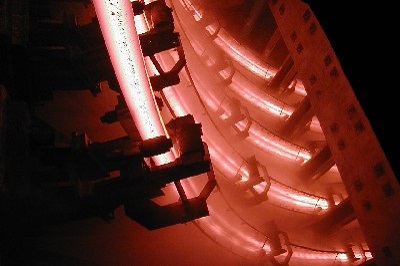
The research activities focus on the whole production cycle of steel and the metallurgic processes concerning the production of metal alloys.
The main research field are:
- Melting, solidification, and hot/cold plastic deformation to create a synergy among the composition, microstructures and performances of metal alloys with the objective to improve the quality of products. An example of such research activities is creating lightweight steel with high percentage of Manganese (Mn) and Aluminium (Al). Developing this high-resistance materials aims at reducing the mass of those materials in case of highly ductile and technical materials.
- Reducing the environmental impact of the production processes of steel, cast iron, aluminium alloys, and copper alloys. In particular, the focus is to reduce the emission of greenhouse gases, reuse slag as raw materials and take advantage of their heat in line with the principles of circular economy.
- Modelling of solidification (cast, ingots, continuous casting) and plastic deformation (open/closed die forging, drawing, rolling, extrusion, wire drawing) processes, as well as the interaction between electromagnetic fields and liquid metal alloys (rotary and linear electromagnetic stirrer).
- Modelling of the non-metallic inclusion formation process in steels and nanoprecipitation in bearing steel, aluminium alloys and nickel super-alloys.
- Investigation of innovative thermal treatments and plastic deformations. The research activities focus on the relation among the operational parameters set during production (temperature, yield, strain rate), the microstructure, and crystalline texture and the resulting mechanical and technological properties.
- Investigation and analysis of the hot and cold corrosion, especially referring to steels for automotive, stainless steel, duplex, super-duplex and nickel alloys. Many activities are carried out in collaboration with universities and leader companies both at a national and international level.
